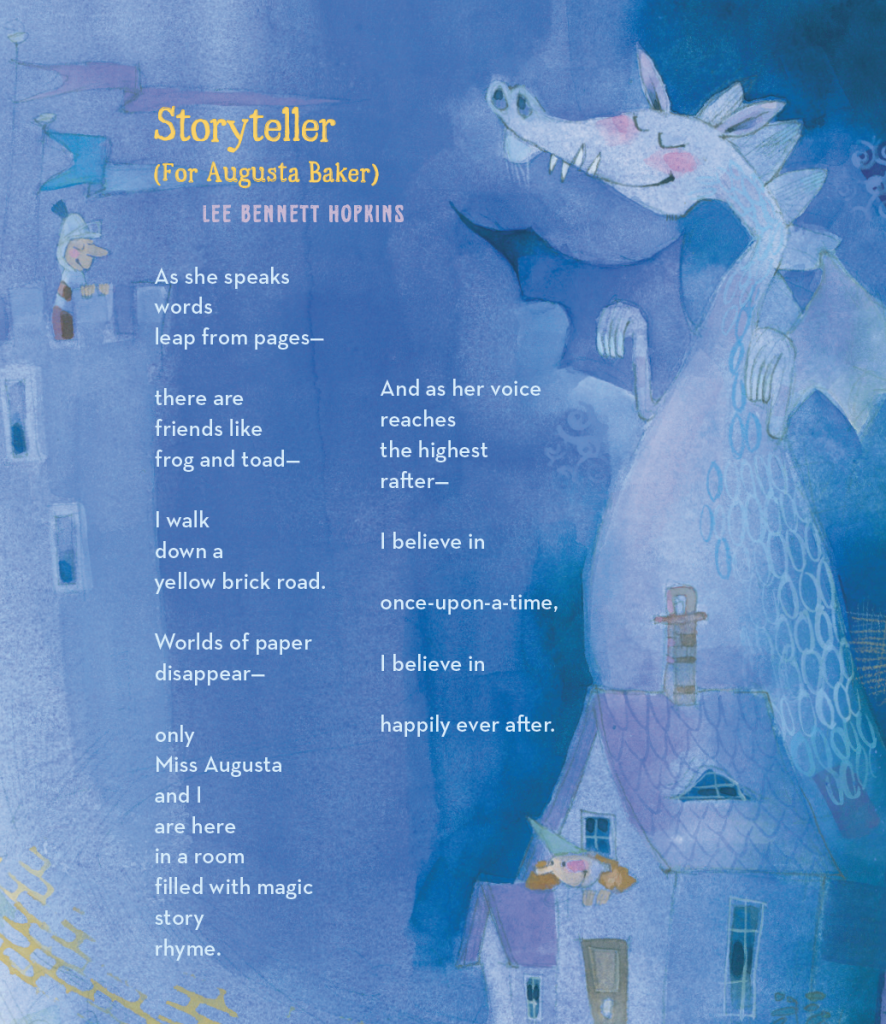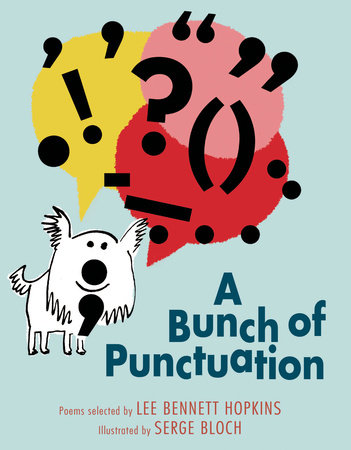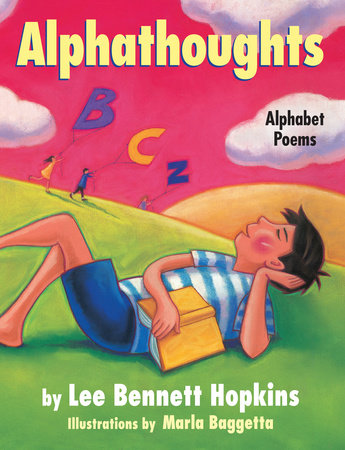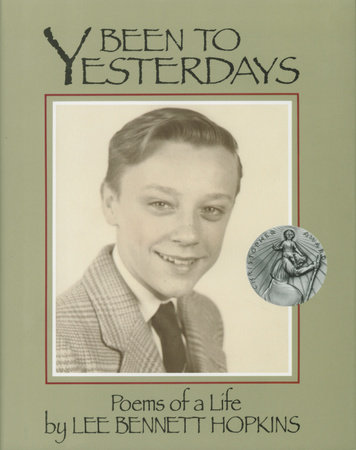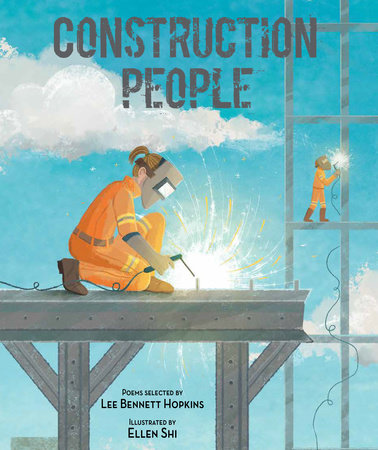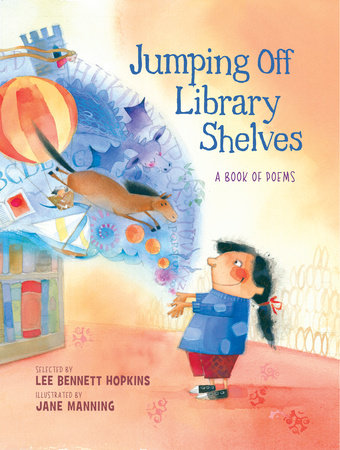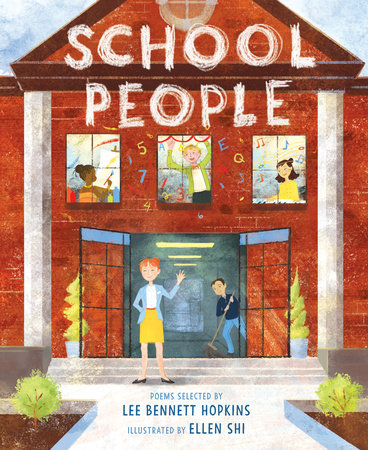Honoring the Legacy of Poet Lee Bennett Hopkins
This remembrance of the prolific and inspiring poet Lee Bennett Hopkins, who passed away in 2019, has been adapted from a letter Rebecca Davis, Editorial Director of Wordsong, wrote in support of Lee’s induction into the Florida Artists’ Hall of Fame in 2016.

Lee Bennett Hopkins was, truly, the Pied Piper of Poetry. It would be hard to overestimate the impact he had on poetry for children. Throughout his career, he not only wrote brilliant poems, but his love for poetry, his enthusiasm, his high standards, his generosity, and his honesty sent ripples spreading ever outward to influence all corners of the field. His voice was a clarion call for more poetry, better poetry, poetry every day for children.
As a poet, Lee, of course, was a major talent. His finely tuned ear for sounds (“…a deluge / pounding down / sounding /…crouches…” from “Seattle Morning”) and for finding just the right word showed in his poetry. In 2016, he received the Regina Medal, which is “awarded annually to a living exemplar of the words of the English poet, Walter de la Mare ‘only the rarest kind of best in anything can be good enough for the young,’ for continued, distinguished contribution to children’s literature without regard to the nature of the contribution.” Other awards Lee won as a poet included the NCTE Award for Excellence in Poetry for Children and both the Christopher Award and a Golden Kite Honor Award for his autobiographical picture book written in verse, BEEN TO YESTERDAYS. He was also the author of three young adult novels and many important professional books, and he won the University of Southern Mississippi Medallion for “lasting contributions to children’s literature.”


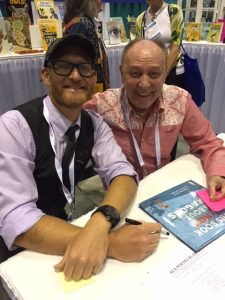
Lee was recognized by the Guinness Book of World Records as the world’s most prolific anthologist of poetry for children; he had 113 anthologies published as of 2011. He compiled his anthologies carefully, blending new voices with classic ones that speak to children today as truly and beautifully as they did when the classics were first written. He arranged the poems so that the anthologies feel as if they have a beginning, middle, and end; this makes them especially engaging and satisfying. He selected poems that will speak directly to children at the same time capturing the wonder in our world. He said in an interview on the Poetry at Play website, “When I read a work and utter ‘oooohhh,’ I know in my soul it is a great poem. I’ve always gone on the ‘oooohhh’ factor when selecting work for a collection” Because of Lee’s impeccable taste, a poem that made him exclaim oooohhh, will have an “oooohhh factor” for readers, too.
Lee also put together numerous anthologies that are invaluable to teachers and librarians, giving them poems so that they can integrate poetry across the curriculum and truly make it a part of children’s everyday lives. To this end, he compiled anthologies on such subjects as math, science, American history, geography, inventors, famous Americans, etc. He also compiled the first I-Can-Read poetry anthologies.
Further, his anthologies introduced many new poets to the field. It’s challenging to get published as a children’s poet. Because Lee was so generous as a mentor, he cultivated new talent and gave many poets their first opportunity to be published. By editing their work, by encouraging and challenging them, and including them in anthologies, he nurtured and taught a number of authors who themselves have gone on to make significant contributions to the world of children’s books—including Kristine O’Connell George and Rebecca Kai Dotlich, among others. One such poet once told me that there was no one as enthusiastic as Lee was when she nailed a poem, and no one as blunt as he was when she misfired. Lee’s high standards had an impact throughout the field of children’s poetry.
Lee also influenced the field by establishing three awards for children’s poets. In 1993, he joined forces with the Pennsylvania State University Libraries, the Pennsylvania Center for the Book, and the Pennsylvania School Librarians Association to create the Lee Bennett Hopkins Poetry Award, which is presented annually to an American poet or anthologist for the most outstanding new book of children’s poetry published in the previous year. Then, in 1995, once again focusing on fostering new talent, the Lee Bennett Hopkins/IRA Promising Poet Award was given for the first time. This award is presented every three years to a promising new talent in children’s poetry.
As Janet Wong and Rebecca Kai Dotlich said in their profile of Lee for his NCTE Award for Excellence in Poetry for Children, “No one has worked harder to recognize and promote children’s poetry in America. There are only four major American Awards for Children’s Poets, and two of them bear his name.” The latest award he created will be presented every three years to a deserving poet for an original collection or anthology of poetry for children or young adults published in English by a member of the Society of Children’s Book Writers and Illustrators, a major international organization dedicated to the creators of young people’s literature.
In addition, Lee created the Lee Bennett Hopkins Poetry Award for Young People, which will provide cash prizes for winners of the annual Florida State Poets Association contest for students in grades 6-12.
As a poet, an anthologist, and a mentor to poets and editors, Lee contributed to the field of children’s poetry immeasurably. He offered a world of information and wonder in the books he has written and in his anthologies.
Lee was a gift to us all.



